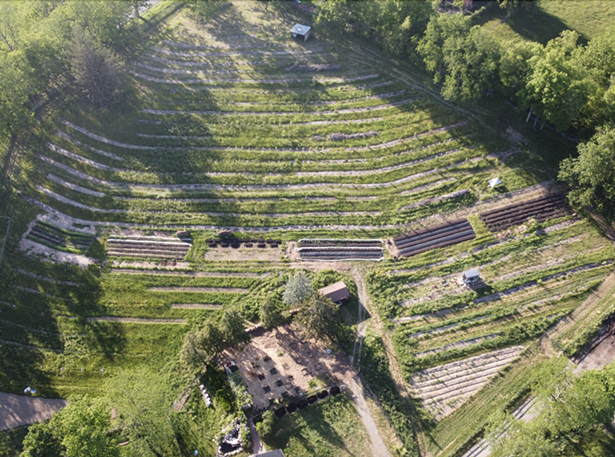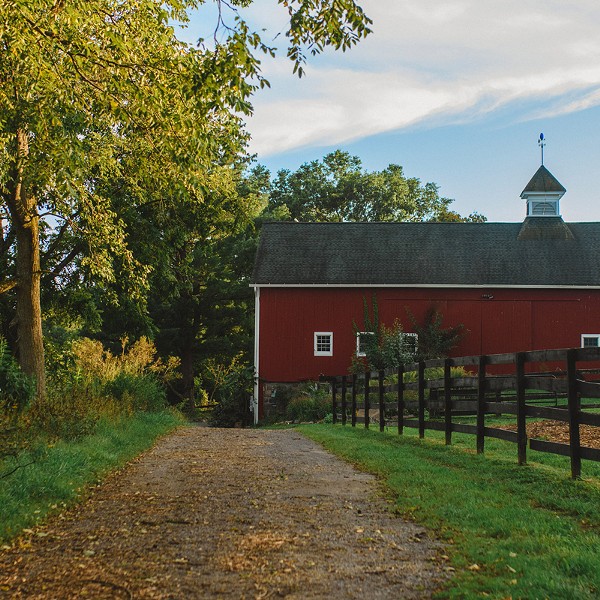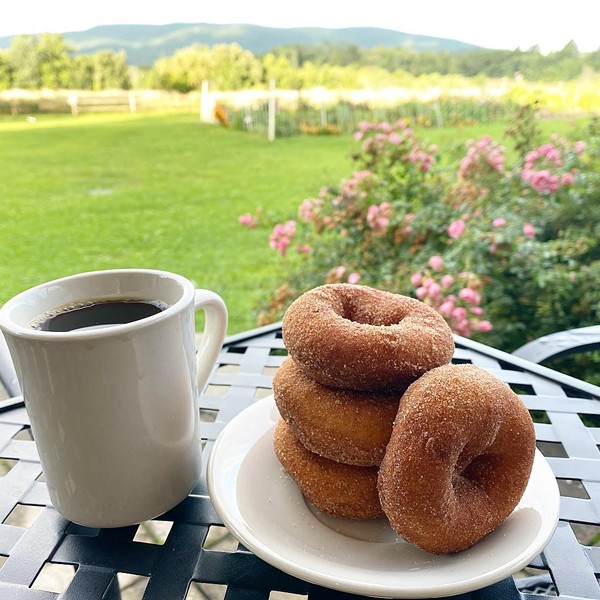Named after the well-known Three Musketeers motto and set on a little less than 15 acres in Goshen, All One One All (AOOA) is a nonprofit regenerative farm aiming to build a more sustainable and conscious community. “We're obsessed with good food, and it just so happens that we also strongly believe that good food comes from good agriculture,” says Alix Daguin, the Project Manager at AOOA. “We're trying to farm in a way that augments the local ecosystem instead of depleting it.”
Daguin and her cohorts do this by implementing a range of regenerative farming practices that build up soil health and ecosystem biodiversity including silvopasture (integrating fruit and nut trees with grazing livestock), cover cropping, no-till vegetable farming, and pollinator gardens. Consumers that are interested in the nitty-gritty ecological discussion can find a large number of resources on their website to discuss how All One One All is building a sustainable farm.
Conscious food consumption comes naturally to Daguin given her upbringing. Her mother, Ariane Daguin is a native of southwestern France and raised Alix between a small town in France and New York City. Her mother also founded the company D’Artagnan, well-known as a producer of humanely raised meat (and also named as a nod to the Three Musketeers).
Daguin points to French foodways as one of the reasons she's inspired to eat locally. “Where we're from in France, people are really connected to where their food comes from. At the market there are live chickens,” she shares. “And I would go back to New York and I'd go to my little middle school and I'd have my own packed lunch and people were eating these square chicken nuggets. And it was like, wow, there's no bone, there's no skin, was this even an animal at one point?”
This became a common thread through her experience with the food industry as a consumer in the US. During her undergraduate years at Cornell, Daguin used to drive back and forth across New York, and on these trips, she noticed that local food wasn’t very accessible despite the surrounding agricultural landscape.
“I would continually drive back and forth through these areas from like the Hudson Valley to the Finger Lakes, and we have a really rich agricultural past here,” Daguin says. “And I would go to the Shop Rite or Hannaford, and none of the onions were from here, none of the garlic was from here despite the fact that we are so close to the Black Dirt region. It blew my mind.”
So Daguin set out to be part of the solution. AOOA aims to encourage the community to eat locally by opening the farm to give consumers a place to learn. On the farm, visitors can take workshops or tours to see the flower fields, livestock animals, bee hives, and the many sustainable practices that the farm is employing. Since starting the farm two years ago, the All One One All team has planted just shy of 2,000 trees, bushes, and vines on the property spanning more than 600 different species. “Every time we eat,” Daguin says, “we are either making a really great choice for our local environment or not such a great choice for the local environment.”
All One One All also has a farm stand on the property selling fresh produce as well as farm products like eggs, honey, wool, berries, flowers, and much more depending on the season. In the future they plan to obtain a license to have a restaurant on the farm to build on their already existing Farm Canteen as well as a dairy license to begin selling yogurt and milk. The Farm Canteen currently offers a full menu Friday, Saturday, and Sunday from 10am to 5pm.
Daguin also plans to sell other local food at the restaurant in the future to reach further than just the AOOA farm. “It doesn't have to be from this farm, that's not at all the argument,” she says. “We have so many great farmers in this region. I just want people to care more about what they're eating, because it's really important.”

















